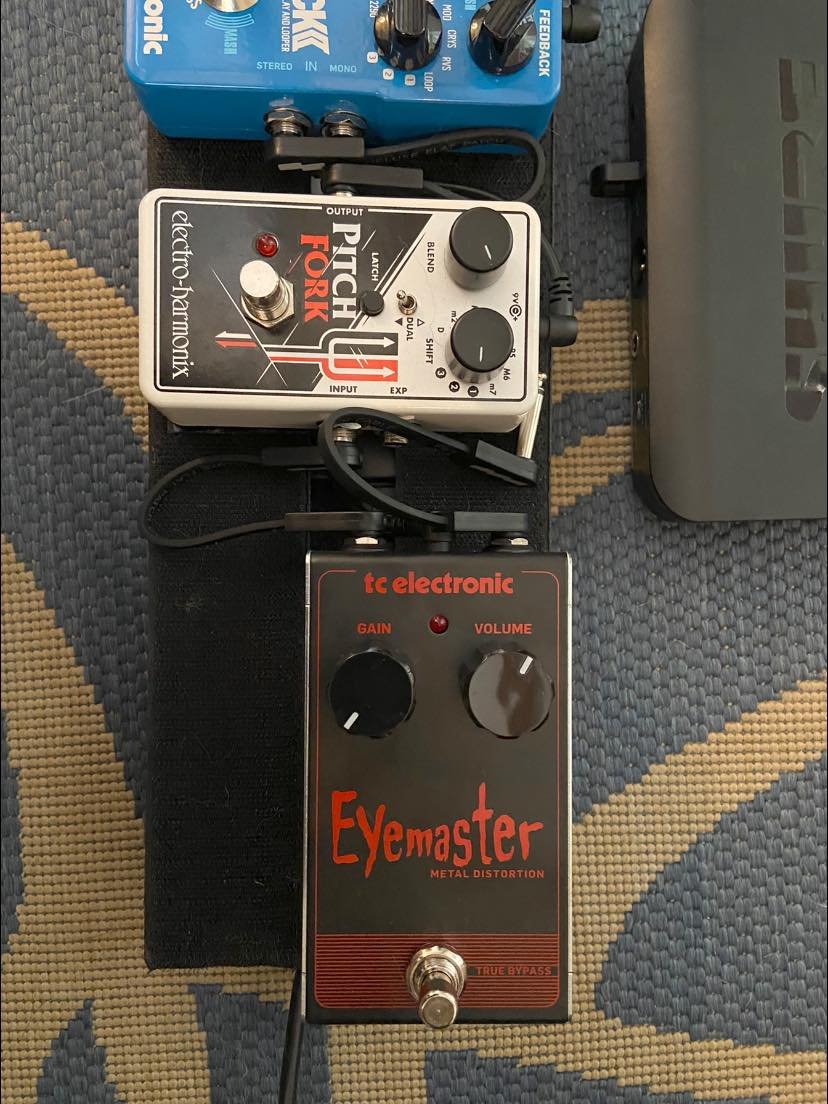Return To Metal (Part 1)
The theme for Megan and Alan's Black Meridian program gave me space to explore the question: "what would a necromantic ceremony designed to create a black hole sound like?".
2022 is shaping up to be my return to Heavy Metal as a composer, scholar, and educator. So, over the next three months I am going to use my blog to highlight the ways Heavy Metal music continues to influence my work, beginning with a concert this week I am so excited about!
This coming Friday (March 18), Megan Ihnen and Alan Theisen Present will perform my piece Dark Star (2019), and other works in their “Black Meridian” concert program, at Tulane University as part of a residency with the New Orleans-based presenter nienteForte (here is a more specific performance listing on Facebook). This will be the first time in over two years that my music has been performed for an in-person audience, and I am especially thrilled Dark Star will return to the stage, as it is one of my favorite compositions to engage with Heavy Metal tropes.
The concept behind Dark Star came together easily after Megan and Alan approached me to write them a new work in 2018. I had, for years, wanted to incorporate aspects of Medieval necromantic rituals, namely those described in historian Richard Kiekhefer's 1998 book Forbidden Rites: A Necromancer's Manual of the Fifteenth Century, into a piece for voice. The theme for Megan and Alan's Black Meridian program gave me space to explore the question: "what would a necromantic ceremony designed to create a black hole sound like?".
After creating the text myself based on the examples in Forbidden Rites and other sources on the occult, I conceived an arc of Heavy Metal moods that fit the kind of the hyper-stylized ‘rage aria’ Megan and Alan wanted me to compose. The piece unfolds as a continuous series of intensifying episodes, each with an allusive saxophone riff and a dramatic vocal line. Megan and Alan were incredibly responsive collaborators — as I composed Dark Star, I sent them many excerpted recordings from Heavy Metal songs to preview the work's journey with respect to style, rhythmic intensity, and mood and solicit their feedback as to situating those sounds into their duo's sonic framework. In many ways, this piece is as much theirs as it is mine, especially in the context of their theatrical "Black Meridian" presentation.
Dark Star's title comes from eighteenth century English natural philosopher John Michell, who theorized black hole-like "dark stars" in 1783. Part of the text quotes Michell's writing, and all of the demons named in Dark Star appear in Kiekhefer's translation of the fifteenth century necromantic manual that is the basis for Forbidden Rites. My piece conveys the dangerous fragility inherent to the rituals Kiekhefer translates, as, even for the most daring Medieval priest, there was an enormous risk attendant to influencing the real world with supernatural forces. Through Megan and Alan's brilliant playing, Dark Star teeters on the edge of reality and loses touch with gravity as it attempts to conjure a break in space and time.
Megan and Alan premiered Dark Star in January 2019 at the Navy Saxophone Symposium in Fairfax, VA, and performed it several times around the country over the course of that year, leading up to their planned tour in 2020. Despite the obvious loss of performances from the outbreak of the COVID-19 pandemic, Dark Star has benefited the past two fallow years as Megan and Alan have been able to take tone to adapt the piece to their fully-amplified performance setup. Most meaningfully, Alan has been able to acquire a suite of pedals he did not have in 2019, which can transform his saxophone's sound in new ways that are perfectly suited for dancing with demons. It is always exciting to work with performers whose artistic vision expands the expressive boundaries of one's music, and Dark Star's evolution in Megan and Alan's hands over the last two years is one of my most exciting experiences as a composer.
Saxophonist Alan Theisen’s pedal setup for the theatrical version of Dark Star
You can read more about the entirety of Megan and Alan's "Black Meridian" program on their website, and also learn about when their duo may be coming to a venue near you to summon spirits and shatter worlds.

